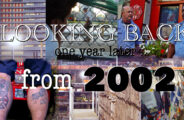
1) This technology isn’t fully developed yet and hasn’t been deployed commercially anywhere, meaning even if somehow fast-tracked this scenario could be a decade away in North Tonawanda.
2) The council and residents (present) unanimously don’t want it anyway.
3) Health risks from a tragic accident, environmental contamination, tanked home values, radioactive material storage concerns, disposal problems and more were cited from community members as reasons a “micro” nuclear reactor (they aren’t necessarily “small” but certainly much less so than current large-scale reactors) should not be permitted anywhere in North Tonawanda, including Tonawanda Island.
4) This issue was originally brought to light in December when a community member came across an investor’s bulletin from Digicorp., which owns the plant on Erie Avenue that powers the energy-wasting, noise polluting “bitcoin mining” operation there. A Buffalo News article followed that “stirred up a hornet’s nest.”
5) A local law passed during the mid-1990s in Oneonta, NY, which passed a law making the city a “nuclear free zone,” was cited as a model for developing the language NT would use to restrict the use of this technology in a densely populated area.
6) The mayor and city council set the public hearing to “get out in front of the issue” and address the growing and justified public furor. Digihost is not actively pursuing at this time any attempt to testbed its micro nuclear reactor concept in this densely populated area to power its energy-wasting, noise polluting“ bitcoin mining” operation there.
7) Other methods of power generation that are much less dangerous to the community — but perhaps politically sensitive amongst certain types — are intended to be included in the local law like wind power, solar, etc. despite having nothing to do with the Digihost issue.
8) The nuclear reactor would be largely unmanned and monitored by AI.
9) “Micro nuclear rectors” are generally designated by three features: being factory fabricated — not built on site only assembled; transportable by truck, vessel, airplane or rail; “Self-adjusting,” meaning streamlined operation and passive safety systems to help prevent catastrophe in a densely populated area.
THE BOTTOM LINE: Be aware; stay informed about the upcoming writing of the local law but save your immediate concern for other things. (Perhaps the noise and emissions the Erie Ave. power plant generates, and for the benefit of whom?)
MY TAKEAWAYS:
— Many speakers at the public hearing mentioned the high levels of radiation already present in North Tonawanda. In some ways, it was the most shocking repeated talking point because it’s already here …
— In a world with an ever expanding appetite for energy, micro nuclear reactors will play an important part in feeding that, being especially valuable in rural areas or other challenging locations where more energy is required than can be supplied by generators.
— The residents of North Tonawanda (who have an informed opinion about Digihost) seem to hate the company. Even the council apparently regrets allowing the company into the city referring to that decision as one from “the former council.” (I could say *a lot* more and continue with but I’ll pass for now.)
— For me, the 500-pound elephant in the room Tuesday evening nobody addressed is how federal regulations could change on a dime and attempt to supersede state’s rights on how this technology is regulated (strictly or loosely?) and frankly with concerns the micro nuclear-reactor industry getting favored treatment. (With all due respect, remember when President Trump was against cryptocurrency and its threat to the American dollar before he was for it?)
— FINALLY … Why are council meetings at 6:30 p.m. but public hearings at 6 p.m.? I suppose that’s understandable on a night with a public hearing and a council meeting, but presents an unnecessary extra burden on working residents who wish to attend the meeting in person and speak. Not to mention those who just get mixed up over a variation in the schedule that doesn’t need to happen. Meetings are not streamed live (highly preferable from a transparency and open government perspective) but recorded and posted the next day.

































